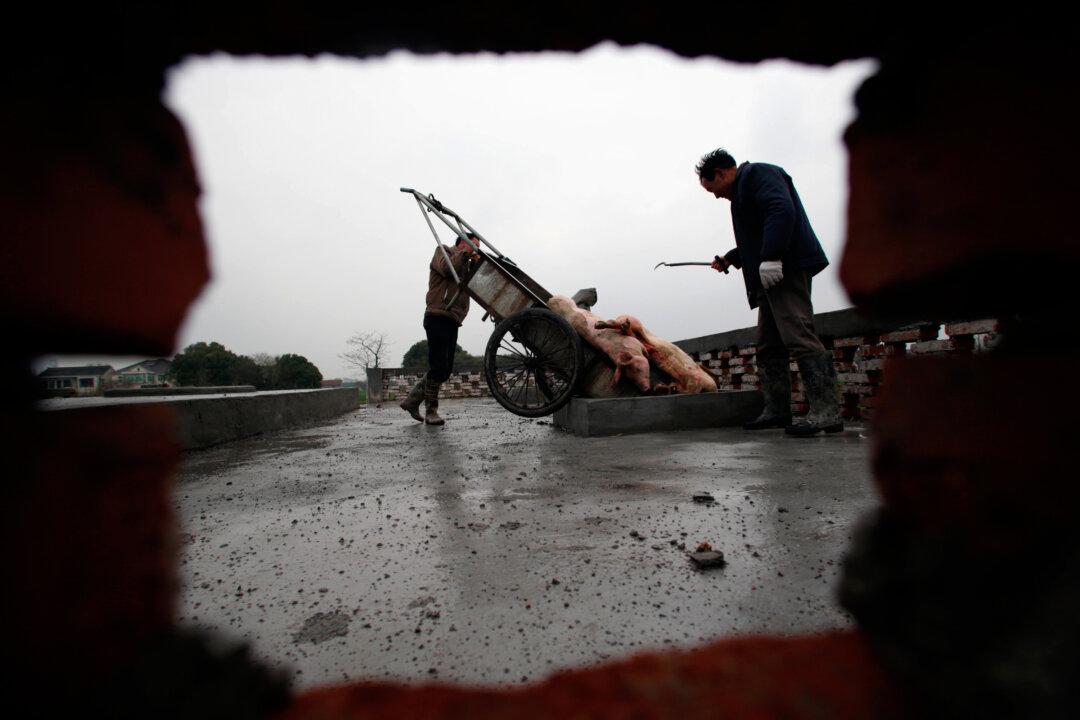Chinese farmers dump pigs—dead from disease—into rivers by the thousands. But the rotting flesh doesn’t always stay there. Some have made a business of fishing out the contaminated meat, which then ends up on the market.
It is a trade defined by lax quality controls and bribery. On April 8, Chinese media outlet Sina reported that a slaughterhouse in Fujian Province was being repurposed for processing contaminated pork—the provincial high court found that a total of 2,000 tons had been sold for about $7 million.
Two other cases, also in Fujian, concerned those who got dead, discarded pigs from rivers. Two men, Lin Shen and Lai Jianhua, had sold about $2 million worth of substandard pork using this method.
A man surnamed Ling procures the animals directly from farmers for between $16 and $80.
“I buy handicapped pigs, pigs with stunted growth owing to health issues, sick pigs, and pigs that died recently,” Ling told Sina.
Ling worked for Zhang Zhiqiang, who ran the Fujian slaughterhouse. They spent about a dollar per pound in their procurement.
“We simply buy everything,” Ling said.
The Supply Side
Pig farmers, lacking sufficient means to dispose of their sick and deformed livestock, provide the materials for people like Ling and Zhang.




